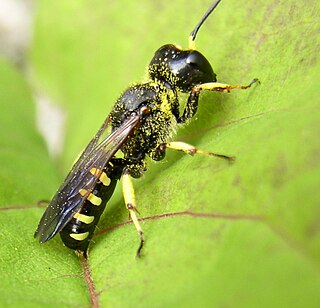
The common mudpuppy is a species of salamander in the family Proteidae. It lives an entirely aquatic lifestyle in parts of North America in lakes, rivers, and ponds. It goes through paedomorphosis and retains it external gills. Because skin and lung respiration alone is not sufficient for gas exchange, the common mudpuppy must rely on external gills as its primary means of gas exchange. It is usually a rusty brown color and can grow to an average total length of 13 in (330 mm). It is a nocturnal creature, and is active during the day only if the water in which it lives is murky. Its diet consists of almost anything it can get into its mouth, including insects, mollusks, and earthworms. Once a female common mudpuppy reaches sexual maturity at six years of age, she can lay an average of 60 eggs. In the wild, the average lifespan of a common mudpuppy is 11 years.

Necturus is a genus of aquatic salamanders in the family Proteidae. Species of the genus are native to the eastern United States and Canada. They are commonly known as waterdogs and mudpuppies. The common mudpuppy (N. maculosus) is probably the best-known species – as an amphibian with gill slits, it is often dissected in comparative anatomy classes. The common mudpuppy has the largest distribution of any fully aquatic salamander in North America.

Halaelurus is a genus of catsharks in the family Scyliorhinidae.

The Kerry slug or Kerry spotted slug is a species of terrestrial, pulmonate, gastropod mollusc. It is a medium-to-large sized, air-breathing land slug in the family of roundback slugs, Arionidae.

Pomacanthus maculosus, the yellowbar angelfish, half-moon angelfish, yellow-marked angelfish, yellowband angelfish or yellow-blotched angelfish, is a species of marine ray-finned fish, a marine angelfish belonging to the family Pomacanthidae. It is found in the western Indian Ocean and, more recently, in the eastern Mediterranean Sea.

Myrichthys maculosus, commonly known as the tiger snake eel, the ocellate snake eel or the spotted snake eel, is a species of fish in the family Ophichthidae, native to the Indo-Pacific. It is occasionally encountered in the aquarium trade. It grows to a length of 1 m (40 in).
The Indonesian speckled catshark is a species of catshark in the genus Halaelurus. It is a tropical catshark found in the Pacific Ocean. It was named by W. T. White, P. R. Last, and J. D. Stevens in 2007. Male Halaelurus maculosus can reach a maximum length of 45.7 centimetres (18.0 in), while females can reach a maximum length of 52.8 centimetres (20.8 in). Catsharks in this species are occasionally caught by demersal fisheries.

Hammatoderus is a genus of longhorn beetles of the subfamily Lamiinae, containing the following species:
Hammatoderus albatus is a species of beetle in the family Cerambycidae. It was first described by Henry Walter Bates in 1880. It is known from Panama and Costa Rica.

Hammatoderus lunaris is a species of beetle in the family Cerambycidae. It was described by Henry Walter Bates in 1880. It is known from Mexico.
Hammatoderus granulosus is a species of beetle in the family Cerambycidae. It was described by Henry Walter Bates in 1885. It is known from Mexico and Belize.
Hammatoderus ornator is a species of beetle in the family Cerambycidae. It was described by Henry Walter Bates in 1885. It is known to exist in Mexico.
Hammatoderus elatus is a species of beetle in the family Cerambycidae. It was described by Henry Walter Bates in 1872. It is known from Mexico, Costa Rica, Ecuador, Colombia, Honduras, Panama, and Nicaragua.

Hammatoderus rubefactus is a species of beetle in the family Cerambycidae. It was described by Henry Walter Bates in 1872. It is known from Nicaragua, Mexico, Costa Rica, and Panama.
Hammatoderus sticticus is a species of beetle in the family Cerambycidae. It was described by Henry Walter Bates in 1874. It is known from Ecuador.
Hammatoderus lacordairei is a species of beetle in the family Cerambycidae. It was described by James Thomson in 1860. It is known from Panama and Mexico.
Hammatoderus colombiensis is a species of beetle in the family Cerambycidae. It was described by Constantino, Benavides and Esteban in 2014. It is known from Colombia.
Hammatoderus decorus is a species of beetle in the family Cerambycidae. It was described by Chemsak and Linsley in 1986. It is known from Mexico.

Hammatoderus thoracicus is a species of beetle in the family Cerambycidae. It was described by White in 1858. It is known from Mexico, Costa Rica, Guatemala, Panama, Honduras, Colombia, Nicaragua, Peru, El Salvador, and Venezuela.

Ectemnius maculosus is a species of square-headed wasp in the family Crabronidae. Its native range comprises much of the eastern United States, as well as southeasternmost Canada. It may also be adventive elsewhere, with some reports from outside the native range in North America, Europe, and northern Asia.











